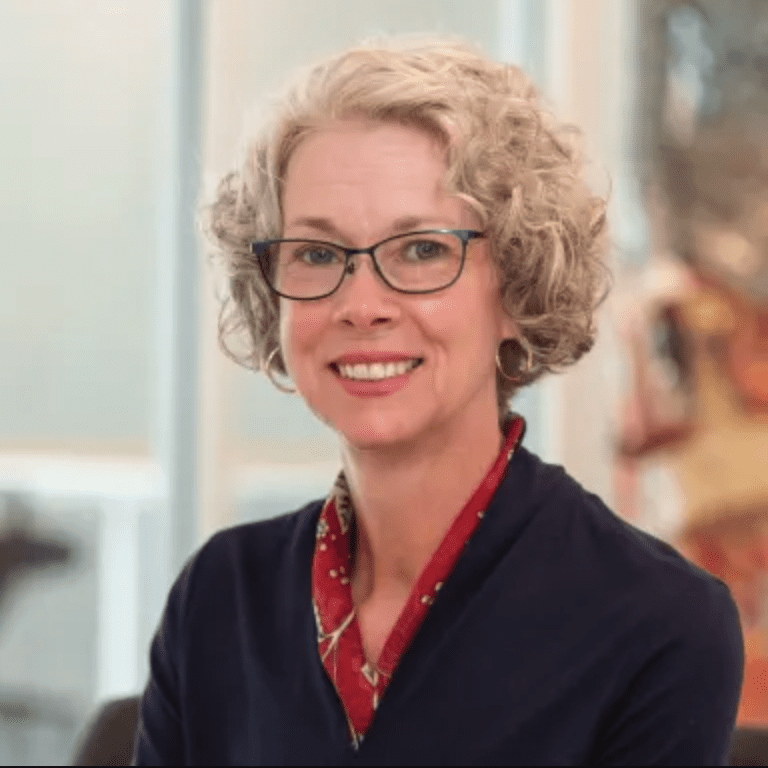Instructors Weigh In on the Transition to Online Learning
Editor & Writer
Editor & Writer
www.bestcolleges.com is an advertising-supported site. Featured or trusted partner programs and all school search, finder, or match results are for schools that compensate us. This compensation does not influence our school rankings, resource guides, or other editorially-independent information published on this site.
Turn Your Dreams Into Reality
Take our quiz and we'll do the homework for you! Compare your school matches and apply to your top choice today.
Due to the threat of COVID-19, colleges and universities across the nation are facing difficult decisions about how to continue teaching and learning while keeping their faculty and students safe. Many institutions have canceled all face-to-face classes, requiring faculty to move entire courses online.
Online instruction has historically enabled educators to teach students anywhere, but the sudden and unprecedented shift to online learning caused by the pandemic brings with it many challenges for teachers and students alike.
College students report increased levels of stress as they contend with the loss of school support networks. Meanwhile, teachers are modifying pre-existing curriculums and lessons to better serve students remotely while also dealing with limited technical and instructional support to help ease the transition.
Despite these challenges, teachers continue to persevere by educating and supporting students as best they can under the circumstances.
In response to these educational disruptions, we checked in with four college professors to ask how the transition to online learning was working for them and their students.
How Have Instructors Managed the Shift to Online Learning?

Robert Bird
Robert Bird is a professor of business law at the University of Connecticut, where he conducts research in compliance, employment law, legal strategy, intellectual property, law and marketing, business and human rights, and related fields. Robert has authored over 70 academic publications, including articles in The Journal of Law and Economics, the American Business Law Journal, Law & Society Review, Connecticut Law Review, Boston College Law Review, and the Harvard Journal of Law & Public Policy.
From my perspective, the biggest challenge with transitioning from in-person classes to online learning is maintaining the quality and integrity of the course.
Building a poor online experience is easy. Building an excellent online experience — in which students receive at least as much feedback, instruction, and content as they do in a face-to-face class — is hard. Instructors cannot rely on class meetings to answer questions, notify students of changes, and give informal feedback.
I have dealt with these challenges by making my online course as abundantly clear and organized as possible. Students can find needed information in multiple places, and all course modules are organized using a similar pattern. This helps students perceive the "rhythm" of the class and reduces the chance that a student will be suprised by a particular course segment.
It is critical for any instructor to maintain academic rigor in an online forum; this will stay the same. What will change, however, is how that material is conveyed.
You don't see students in person multiple times a week. You cannot have expectations that students will respond to material in the exact same way as they do in a face-to-face class.
Managing the psychological aspects of students' transition will be much more challenging. Universities may not have the expertise or infrastructure to adapt rapidly to this new reality.
The instructor must adapt their material to the online student and not assume that the student will adapt to the instructor's material. Instructors must also be open to novel ways of thinking about grading and teaching in order to give students the best experience possible.
The change to an online environment has been radical and unexpected. Universities are doing their best to accommodate students. In many ways, institutions are succeeding in delivering quality academic content in a manner that students can process.
Managing the psychological aspects of students' transition will be much more challenging. Universities may not have the expertise or infrastructure to adapt rapidly to this new reality. The psychological needs of students in higher education cannot be ignored.

Dr. Taryn A. Myers
Dr. Taryn A. Myers is an associate professor of psychology and the director of academic effectiveness at Virginia Wesleyan University. She earned her MA and Ph.D. in clinical psychology from Kent State University, where she served as a teaching fellow and assistant director of the Psychological Clinic. Myers received her BA in psychology with an interdisciplinary minor in women's and gender studies from Kenyon College.
The biggest challenges I have faced are trying to stay connected with my students while teaching remotely, and trying to craft an online class on the fly when the development process typically lasts multiple weeks.
I have stayed connected with my students through email, Blackboard announcements, video lectures, and assignment instructions. In addition, one of my classes meets via Google Hangouts during our normal class time.
My course curriculum has stayed the same, but my expectations have altered drastically. I typically do not accept small assignments late and dock points for each day larger assignments are late. However, due to the unprecedented global pandemic, I now offer extensions to anyone who needs them, no questions asked.
While these methods can be implemented online, a human interaction piece is missing when teaching virtually that is vital to the spirit of liberal arts institutions.
I do not see online learning as a viable long-term option for my particular institution. I teach at a small liberal arts school, and our cornerstone is professor-student interaction. I get to know my students well, have them in multiple classes, and largely teach discussion-based and interactive classes. Students often stop by my office to say hi or ask questions.
While these methods can be implemented online, a human interaction piece is missing when teaching virtually that is vital to the spirit of liberal arts institutions.

Dr. Bess Rowen
Dr. Bess Rowen is a visiting assistant professor in Villanova University's Department of Theatre and Studio Art . She has taught courses in acting, writing, gender and sexuality, critical theory, and more at both public and private universities. She has also published research on theater history, theory, performance, and pedagogy in several scholarly journals.
As a visiting assistant professor who teaches four university courses in various disciplines and modalities, I feel that the move to online learning has presented more challenges for certain courses than it has for others.
My seminar classes — an undergraduate gender and women's studies course and a graduate theater course — more easily lend themselves to online platforms than my two undergraduate performance courses do. The performance courses in particular have required an incredible amount of additional planning and creativity to adjust to the current moment.
I have been inspired by the students, who have gamely gone on this educational adventure with me, as we find out together what works and what fails for each class.
The first thing I did when I realized we had to shift classes online was return to the learning goals stated in my syllabi to see what kinds of modifications I needed to make to best serve the purposes of my classes.
This moment highlights the reality that students and professors are all simply people, and we must take into account how our lives affect our teaching and learning
And yet there is another, more abstract need that colleges and universities serve: community and interpersonal relationships. The move to online learning would have been challenging enough without all of the other frightening uncertainties abounding in this COVID-19 pandemic.
I see myself as bearing a responsibility to not only provide an outlet for students to address their fears and hopes through art-making and conversation, but to also give students at least momentary distractions from the current situation, as the lines between home and school continue to blur.
Some expectations had to change, but my overall purpose as a professor has not. This moment highlights the reality that students and professors are all simply people, and we must take into account how our lives affect our teaching and learning, pandemic or not.

Noreen Lace
Noreen Lace is an instructor at California State University, Northridge, and the author of "How to Throw a Psychic a Surprise Party." Having received an MA and MFA from the California State University, she began teaching and never left.
Because I've taught at least one online class per semester for the last 15 years, the transition of my face-to-face classes went rather smoothly.
Everything I plan in my traditional classes does not work in an online environment, so I needed to not only focus on the desired learning outcomes, but also eliminate some assignments and, in some cases, start from scratch.
My students transitioned like champs! I posted a check-in video in which I asked them how they were doing and allowed them to express their concerns. I felt it was important for them to see my face and for me to see theirs.
The students greatly appreciated this. A few of them said that no one else had checked in with them, so they were happy to respond.
We serve a diverse community, which includes low-income and international students. Some of my students do not even have their own spaces. Therefore, depending on what is expected of the class, it may become more challenging for students to adjust to online learning.
I see online education's ability and possibility in serving many more students in the future, but I also see issues that much of our population will experience.
Beyond counseling and referrals for mental and physical health, our local colleges have offered computers to those in need, while companies have offered Wi-Fi .
However, I had a student tell me that for his birthday, he received his first bed. It was a roll-up mattress, laid on the floor in a common room at night. I have another student who became homeless about two weeks before our school went online.
Although synchronous classes have value, we cannot require students to allow us teachers to live in their private spaces.
I see online education's ability and possibility in serving many more students in the future, but I also see issues that much of our population will experience. These things need to be understood by both the faculty who will be training and exploring online teaching and those who are continuing or seeking an education.





